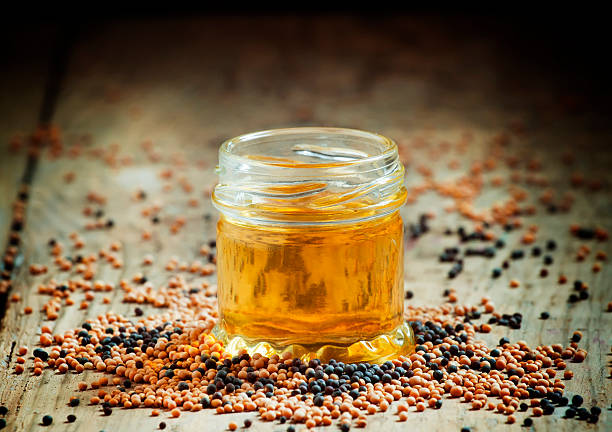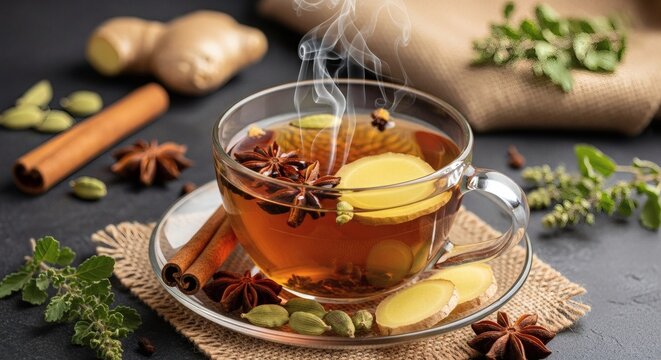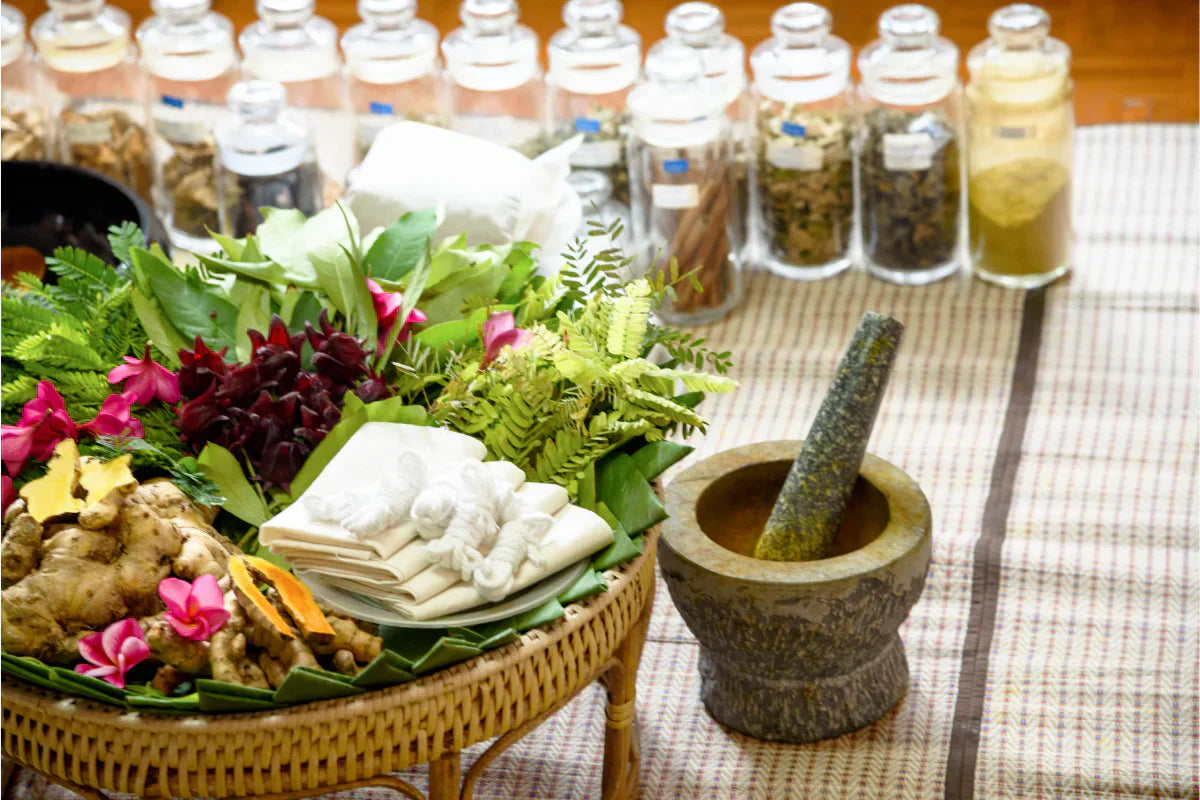Cold-pressed Mustard Oil – Benefits, Uses, Nutrition and More

Introduction – What Is Cold-Pressed Mustard Oil (Kachi Ghani)?
Imagine walking through a vibrant Indian market, the air filled with the pungent aroma of spices and oils. Among them, mustard oil stands out as a staple in Indian kitchens and Ayurvedic practices.
Cold-pressed mustard oil, popularly known as Kachi Ghani or stone-pressed mustard oil, is one of India’s most treasured traditional oils valued equally for its culinary and therapeutic uses. Extracted from mustard seeds using the traditional ghani (wooden or stone press), this oil is produced without heat or chemical solvents, allowing it to retain all its natural nutrients, antioxidants, and aroma.
TL;DR – Cold-Pressed Mustard Oil (Kachi Ghani)
- Traditional Purity: Extracted from mustard seeds through slow, wooden or stone pressing (Kachi Ghani) — without heat or chemicals — retaining nutrients and aroma.
- Nutrient-Rich: Packed with omega-3s, MUFAs, vitamin E, and antioxidants that support heart, skin, and hair health.
- Ayurvedic Benefits: Warming (Ushna) in nature — improves digestion, circulation, and balances Kapha dosha; ideal for winter use and massage.
- Everyday Uses: Enhances Indian dishes, nourishes hair roots, hydrates skin, and promotes overall vitality when used moderately.
- Mindful Use: Choose organic, cold-pressed, low-erucic varieties; patch-test before topical use and limit intake to 1–2 tbsp/day.
Meaning of Cold-Pressed Mustard Oil
The term Kachi Ghani literally translates to “raw press.” Kachi means unheated or raw, and Ghani refers to the wooden or stone press used for extraction. Unlike refined oils, which undergo bleaching and deodorizing, Kachi Ghani mustard oil is extracted at temperatures below 40–50°C, ensuring that its healthy fats and heat-sensitive vitamins remain intact.
Traditional extraction process vs refined methods
-
Traditional / kachi ghani / stone pressing: seeds are crushed/ground and pressed slowly (often by stone or screw press) at low temperatures. The oil is then filtered; no bleaching or deodorizing.
-
Refined methods (industrial RBD): use dried seeds (copra equivalent), higher heat, and sometimes solvent/chemical extraction, followed by bleaching and deodorizing to remove pungency and free fatty acids. Refining increases smoke point and shelf stability but reduces flavour and many phytonutrients.
Why Cold-Pressing Matters: Purity, Potency, and Nutrition
Cold-pressing preserves volatile compounds (mustard’s characteristic pungency), antioxidants, and delicate fatty acids that can be degraded by heat/chemicals. The result is a more potent, aromatic oil with retained micronutrients.
Mustard Oil vs Cold-Pressed Mustard Oil (Kachi Ghani / Stone Pressed)
|
Aspect |
Refined Mustard Oil |
Cold-Pressed Mustard Oil (Kachi Ghani) |
|
Extraction |
High heat, solvents |
Low-temperature mechanical pressing |
|
Aroma |
Mild |
Strong, natural pungency |
|
Nutrition |
Reduced |
Fully retained |
|
Use |
Cooking only |
Cooking + Massage + Ayurvedic use |
Nutritional Value of Cold-Pressed Mustard Oil
Mustard oil nutrition facts (high-level)
Per tablespoon (approx): predominantly fat-calories (≈120 kcal); mostly fat with a high proportion of mono- and polyunsaturated fats. Exact values vary by seed variety and processing.
Key fatty acids
-
High in MUFAs (mainly oleic acid).
-
Significant PUFA content — including omega-3 (α-linolenic acid, ALA) and omega-6 (linoleic acid) in varying small amounts depending on seed variety.
-
Erucic acid: Traditional mustard varieties (Brassica species) contain erucic acid levels that vary by cultivar. Many modern commercial varieties are bred low-erucic (canola/rapeseed hybrids), but it’s worth checking labels if that is a concern.
Vitamins & antioxidants
Cold-pressed mustard oil retains minor antioxidants (tocopherols), plant sterols, and other phytonutrients that contribute to stability and health benefits.
Calorie content and daily intake suggestion
-
Calories: ~120 kcal per tablespoon.
-
Intake suggestion: Use in moderation like any oil, 1–2 tablespoons per day as part of a balanced diet (adjust to energy needs and health status). Those with lipid disorders should consult a clinician.
Health Benefits of Cold-Pressed Mustard Oil
1. Heart Health
Mustard oil is rich in monounsaturated fatty acids (MUFAs) that help reduce bad cholesterol, improve heart function, and support circulation when used in place of saturated or hydrogenated fats.
2. Skin Nourishment
Packed with vitamin E, omega fatty acids, and natural emollients, mustard oil deeply hydrates the skin, restores its softness, and protects against dryness, especially during winter or cold climates.
3. Hair Care
When massaged into the scalp, mustard oil nourishes hair roots, stimulates blood flow, reduces dandruff, and strengthens strands, promoting healthier, shinier, and more resilient hair over time.
4. Anti-Inflammatory Effects
Mustard oil contains bioactive compounds like allyl isothiocyanate, which exhibit anti-inflammatory and pain-relieving properties, helping soothe sore muscles, stiff joints, and minor body aches when applied externally.
5. Digestive Aid
In Ayurveda, mustard oil is considered warming (Ushna), known to stimulate Agni (digestive fire), enhance appetite, and support smoother digestion, especially beneficial for Kapha-dominant body types.
6. Antimicrobial Properties
Rich in natural isothiocyanates, mustard oil has antibacterial and antifungal properties that help protect skin from minor infections and promote gut balance when used moderately in cooking.
7. Warming Nature
Mustard oil’s natural warmth improves blood circulation, keeps the body comfortable in cold weather, and helps balance Kapha dosha, making it ideal for winter massage and cooking.
8. Massage Benefits
When gently warmed and massaged, mustard oil enhances circulation, relieves muscle stiffness, supports joint flexibility, and promotes deep relaxation — a key practice in Ayurvedic Abhyanga therapy.
9. Detox Support
Regular mustard oil massage can improve lymphatic flow, helping the body eliminate toxins, boost metabolism, and support internal detoxification, leaving you feeling lighter and more energized.
10. Cultural Connection
Beyond its physical benefits, mustard oil connects generations through cooking, massage, and self-care traditions, embodying India’s timeless approach to natural wellness and holistic living.
Mustard Oil for Cooking – Why It’s a Healthy Choice
Smoke point and Indian cooking suitability
Cold-pressed mustard oil has a moderate to relatively high smoke point (exact value varies). Refined mustard oil has an even higher smoke point and is suitable for high-heat frying. The pungent flavour enhances many Indian preparations (tempering/tadka, pickles, stir-frying).
Taste & aroma enhancement
Characteristic pungent, sharp flavour elevates dals, pickles, and stir-fries; a small amount goes a long way.
Comparison: refined oil vs mustard oil, sunflower oil vs mustard oil, olive oil vs mustard oil
Refined vs cold-pressed mustard: Refined mustard oil has a neutral flavour, a higher smoke point, and fewer phytonutrients, making it suitable for deep frying but less nutritious. In contrast, cold-pressed mustard oil offers a stronger, more natural flavour and retains more bioactive compounds, antioxidants, and nutrients, making it both healthier and richer in taste.
Sunflower vs mustard oil: Sunflower is typically higher in linoleic acid (omega-6); mustard has more MUFA and some omega-3 (ALA), depending on variety. Mustard’s pungency and antimicrobial compounds are unique.
Olive vs mustard oil: olive oil (extra virgin) is high in MUFA (oleic) and polyphenols with established cardio benefits; mustard oil is warming and pungent with different phytochemicals—both can be healthy choices depending on c.uisine and health goals. For raw dressings, extra virgin olive oil is ideal; for hot Indian cooking, cold-pressed or refined mustard oil suits local food traditions.
Beauty Benefits – Mustard Oil for Skin and Hair
Is Mustard Oil Good for Hair?
Scalp nourishment
Mustard oil is warming, improves local circulation to the scalp, and can nourish hair follicles. It contains vitamins (minor) and fatty acids that condition hair.
Hair growth & dandruff control
Traditional use suggests mustard oil helps reduce dandruff and strengthen hair shaft; antimicrobial properties may help mild scalp infections. Evidence is mostly traditional/anecdotal and from small studies.
How to apply and how often
Application: warm a small amount, massage into scalp (5–10 minutes) and leave 30 minutes/overnight, then shampoo.
Frequency: 1–2 times per week for most people. Reduce frequency for oily scalps or if hair becomes greasy.
Is Mustard Oil Good for Skin?
Skin hydration and glow
Acts as an emollient, helps lock moisture, and imparts a warm glow. Best for dry, rough skin when used moderately.
Massage oil benefits
Traditional Ayurvedic massages use mustard oil to stimulate circulation and relieve stiffness (especially in cold climates or for Kapha conditions).
Ayurvedic facial uses
In small quantities and mixed with cooling agents (sandalwood, rose) for Pitta skin, or used alone for warming massage in Kapha issues. Patch test before facial use may irritate sensitive skin.
Choosing the Right Mustard Oil – Organic & Cold-Pressed Options
Why Go Organic
Organic cold-pressed mustard oil ensures:
-
No chemical fertilizers or pesticides in seeds.
-
No bleaching, deodorizing, or artificial colourants.
-
Retains the original aroma, flavour, and nutritional profile.
How to Identify Authentic Cold-Pressed Mustard Oil
When shopping, check:
-
Label mentions “Cold-Pressed,” “Kachi Ghani,” or “Stone-Pressed.”
-
The ingredient list includes only mustard oil.
-
Colour is golden brown, and aroma is sharp and nutty.
-
Packaging in dark glass or food-grade bottles to prevent oxidation.
-
Prefer certified organic brands with transparent sourcing.
Are There Any Side Effects of Mustard Oil?
Topical allergy risks
A small number of people can have contact dermatitis or irritation. Do a patch test before extensive use.
Over consumption concerns
Excessive intake of any oil increases calorie load and can lead to weight gain. Varieties high in erucic acid were historically a concern for heart health in very high doses. Choose low-erucic cultivars and use moderation.
Tips for safe usage (especially in hair & skin applications)
-
Patch test for topical use.
-
Warm oil slightly before massage (not too hot).
-
Avoid on broken open wounds unless advised.
-
Limit frequency on oily scalps to avoid pore clogging.
-
If using internally for therapeutic reasons, consult a clinician if you have cardiovascular disease, pregnancy, or special health conditions.
Conclusion
In conclusion, mustard oil is more than just a cooking ingredient; it embodies a rich heritage and offers numerous health benefits. From its nutritional profile, which includes heart-healthy fatty acids and antioxidants, to its versatile culinary uses and potential skin and hair care advantages, mustard oil can be a valuable addition to your lifestyle.
As you consider incorporating mustard oil into your routine, remember to choose high-quality varieties, such as cold-pressed or organic options, to maximize its benefits. Use it mindfully, whether in your cooking or wellness rituals, and embrace its warming, nourishing qualities. If you're exploring a calmer, heritage-rooted routine, this is a lovely place to start.
Buy Maharishi Ayurveda Cold-Pressed Mustard Oil. Experience purity, nutrition, and authentic Ayurvedic goodness in every drop.
FAQs
1. Does mustard oil contain Omega-3 fatty acids?
Yes, mustard oil contains a small but meaningful amount of alpha-linolenic acid (ALA), an omega-3 plant fat, depending on seed variety. It is also rich in MUFAs (oleic acid). Exact amounts vary by cultivar and processing.
2. How often should I apply mustard oil to my hair?
Generally, 1–2 times per week is effective for most hair types. Adjust frequency: less for oily scalps, more sparingly for fine hair; coarse/dry hair may benefit from more frequent or longer-leave applications.
3. Is mustard oil suitable for cooking from an Ayurvedic perspective?
Yes, Ayurveda regards mustard oil as warming (ushna) and stimulating, beneficial for improving digestion and reducing Kapha. It’s recommended for Kapha conditions and cold seasons, but should be used cautiously by people with Pitta-dominant imbalances because its heating nature can aggravate Pitta.
4. Does mustard oil help in detoxifying the body?
Mustard oil can support digestion and local circulation, which are helpful when following cleansing routines. Topical massage with mustard oil improves lymphatic flow and local detoxification in traditional practices. However, it is not a standalone systemic detoxification that requires diet, lifestyle, and guided therapeutic steps in Ayurveda.
5. Can mustard oil be used in Ayurvedic therapies?
Yes, mustard oil is used externally in many Ayurvedic therapies (abhyanga, rubs, certain poultices) for warming, improving circulation, and reducing stiffness. Internally, its use is guided by the practitioner and tailored to the patient’s constitution and condition; because of its heating effect, it’s especially indicated in Kapha disorders and post-cold therapies.
6. Can mustard oil help with digestion?
Traditionally, mustard oil is believed to stimulate digestive fire, aiding digestion when used in cooking.
Popular Posts

Natural Ayurvedic Detox: Gentle Home Remedies
23 Jan, 2026What does natural detox really mean in Ayurveda? Essentially, this practice refers to the elimina...
Read more
Winter Weight Gain and Brain Fog: Ayurveda Explains Why
22 Jan, 2026What’s the trigger for winter weight gain? Why do we often experience brain fog, feel dull and he...
Read more
Ayurvedic Detox Rituals for Winter Pollution
20 Jan, 2026What Is Detoxification? In the Ayurvedic tradition, detoxification, also known as the detox pr...
Read more





 Popular Read
Popular Read

















































